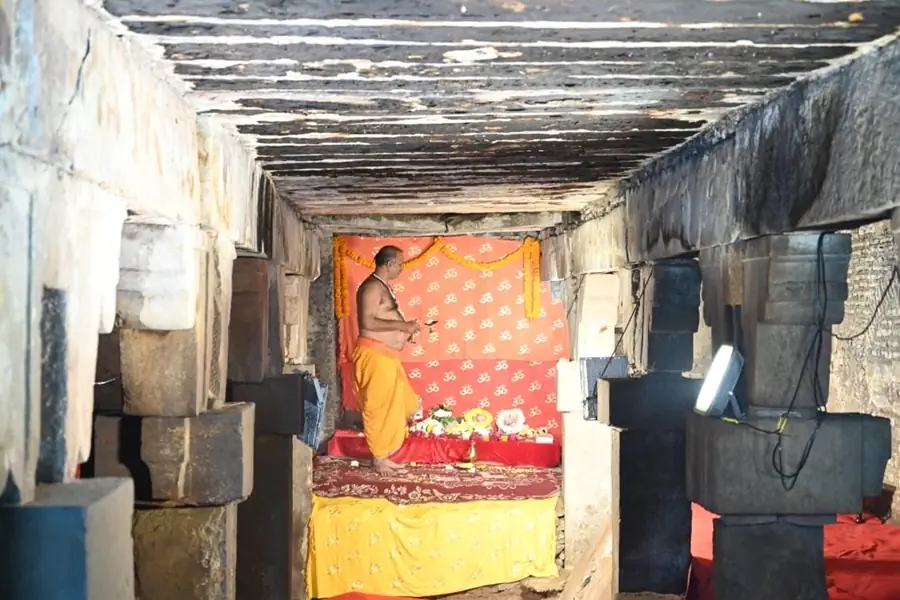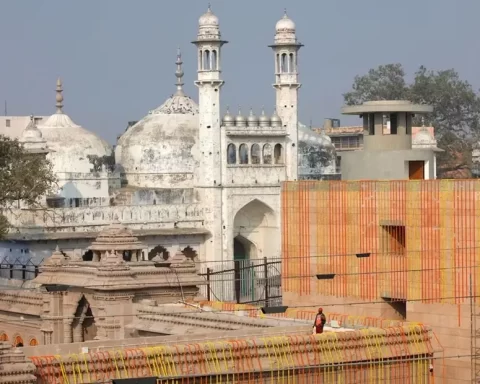Varanasi (Uttar Pradesh) [India], February 1 (ANI): After the Varanasi Court allowed the Hindu devotees to worship inside the Gyanvapi mosque complex, the barricades of Vyas Ka Tehkhana (basement) of the mosque were opened, and daily arti and puja were performed early in the morning on Thursday.
According to Vishnu Shankar Jain, the Hindu side lawyer Mangla Arti was performed at 3:30 in the morning and bhog was done at 12 pm.
Puja started at gyanvyapi pic.twitter.com/ZjcWYnklCG
— Vishnu Shankar Jain (@Vishnu_Jain1) February 1, 2024
“Timings for Aarti at Vyas cellar. Daily 5 aarti –Mangla- 3:30 am, Bhog- 12 pm, Apranh- 4 pm, Sanykaal- 7 pm, Shayan- 10:30 pm. 2 done so far,” Jain said in a post on X.
The court had asked the district administration to make the necessary arrangements within the next seven days.
Meanwhile, Jitendra Nath Vyas a member of the Vyas family who has been allowed to offer prayers inside the mosque located adjacent to the Kashi
Vishwanath Temple in Varanasi said he was very happy to pray at the Tehkhana again.
“We are very happy that we have got the permission to resume puja there,” he said.
This comes as Varanasi court on Wednesday allowed Hindu devotees to offer prayers inside the ‘Vyas Ka Tekhana’ area inside the Gyanvapi mosque complex. The Vyas family member said that he along with priests performed puja in the basement in the presence of district officials.
“At the time of the puja, five priests of the (Kashi Vishwanath) temple trust, members of the Vyas family, Varanasi DM and Commissioner were present there,” he told ANI.
The developments come at a time when the Muslim side led by the Anjum Intejamia committee approached the Allahabad High Court to challenge the Varanasi Court’s decision. The Hindu side has filed a caveat before the High court demanding that it be heard before the plea is taken up.
Muslim side lawyer Akhlaq Ahmed said, “The order has overlooked the Advocate Commissioner report of 2022, ASI’s report, and the decision of 1937, which was in our favour. The Hindu side has not placed any evidence that prayers were held before 1993. There is no such idol in the place.”
The mosque has four ‘tahkhanas’ (cellars) in the basement, of which one is still in the possession of the Vyas family, who used to live there. Vyas had petitioned that, as a hereditary pujari, he be allowed to enter the tahkhana and resume pooja.


